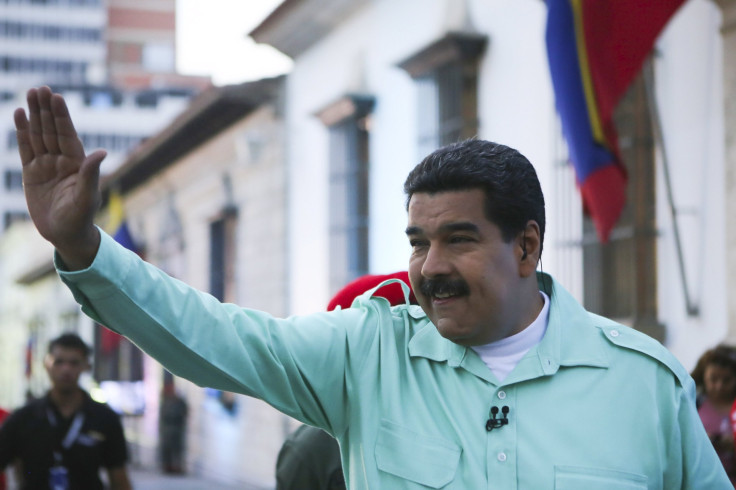Venezuela Gets $5 Billion In Development Funds From China

Venezuela’s President Nicolás Maduro reminded the country this week that despite its troubles, it still has an external economic lifeline. According to the president, Venezuela secured $5 billion in development financing from China -- but he gave no additional details on what the funds would be used for, or the conditions of the loan.
“We just received $5 billion of financing for development,” Maduro said Sunday night in a televised address. “We are working on more tranches. When they are finalized and come through, I’ll give more information.”
In January, Maduro said China had pledged to invest $20 billion in various projects in Venezuela. In March, an official with state-run oil company Petroleos de Venezuela S.A. (PDVSA) told Reuters that China would lend Venezuela $10 billion in the coming months for a financing deal and development of oil fields. But on Sunday, Maduro didn’t specify whether the recent $5 billion was part of either of those agreements. Chinese authorities haven’t commented on the deal either.
Economic Boost
The funds are a boost to Venezuela's troubled economy. The International Monetary Fund predicted inflation could climb near 100 percent this year and the economy would contract by around 7 percent. Meanwhile, Moody’s Investors Service ranked Venezuela as the world’s second-riskiest entity, behind Ukraine.
Venezuela has struggled with foreign cash shortages for years, but last year’s slide in crude oil prices has brought its situation to dire new depths. Earlier this year the Venezuelan government lowered the cap on the amount of money Venezuelans could spend in the U.S. with credit cards to $700, down from $2,500.
Some Venezuelans remain wary of the country’s indebtedness to China. Since 2005, Beijing has loaned Caracas around $56 billion, Inter-American Dialogue, a Washington, D.C., think tank, says. In return, Venezuela sends China around 550,000 barrels of oil a day, PDVSA officials say. About $30 billion of Venezuela's loans have been repaid through oil shipments, and the country accounts for around 5 percent of China’s oil supply.
“There is no information about the conditions of the debt, the interest that we must pay, how much oil will be sent to China or what the funds will be used for,” economist Jose Guerra, former head of economic investigations at the Central Bank of Venezuela, said in an interview with Venezuela’s La Verdad. “It’s worrying that while the amount of debt rises, the amount of international reserves does not grow.”
Tricky, Erratic
Venezuela’s financial and economic data have been tricky to come by as the economy has sputtered. Last year the central bank stopped publishing its monthly scarcity index, which charts how many of the most common basic goods were in scarce supply. In recent months, it’s also been erratic with the release of government spending data and inflation figures, denting the bank’s credibility. Bloomberg News reported that Venezuela hasn’t published data on the cost of living in five months, as consumer prices rose by 68.5 percent from the year before.
Maduro, who succeeded the late President Hugo Chavez, began his third year in office Sunday. His popularity has dipped sharply since he first came into power in April 2013, down to a low of around 22 percent earlier this year as shortages of basic goods continue to plague residents. In the past two months his approval rating has cautiously ticked upward as he’s focused on reframing the conversation around the sanctions President Barack Obama issued on seven Venezuelan officials in March. His most recent approval rating stands at 28.2 percent, polling firm Datanálisis says.
© Copyright IBTimes 2024. All rights reserved.






















